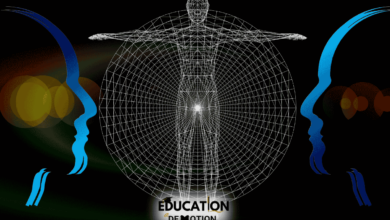Psychological Pathways: Unlocking the Mind

Psychological pathways are the intricate web of networks in the human brain that enables us to think, feel, and act. They work in a way that helps the brain to control responses to experiences and emotions. We are able to enhance cognitive functions, manage emotions, and maintain overall well-being by understanding how psychological pathways function. We will examine how psychological pathways function, their impact on behavior, and how using positive approaches can transform psychological pathways for the better.
What Are Psychological Pathways?
Such pathways make up the system that is responsible for guiding every human’s thought, action, and feeling. These systems develop from accumulated experiences, habits, and learned behaviors over time. A psychological pathway is systems can be termed communication system through which processes are carried out within the brain to formulate responses, selections, and informed decisions.
Types Of Psychological Pathways
- Cognitive Pathways – Manage and execute all activities related to thought, including reasoning and problem-solving.
- Emotional Pathways – Control feelings and all emotional reactions.
- Behavioral Pathways – Describe relevant experiences and all action and routine taken.
- Neurological Pathways – Connect different areas of the brain for easier coordination. These pathways are also related with physiological pathways.
How Psychological Pathways Affect Behavior
The approach to problem solving, stress management, emotional regulation, and even decision making is influenced by our psychological pathways or pathways of our brain. Strong psychological pathways enable effective and rational functioning while weak or impaired pathways result in anxiety disorders and depression.
Neuroplasticity: The Brain’s Ability to Adapt
A fascinating aspect of psychological pathways is neuroplasticity, which refers to the brain’s ability to adapt and reorganize by forming new connections. This remarkable flexibility allows individuals to change unhealthy thought patterns and build new, positive behaviors over time.
For example, learning a new skill actively strengthens cognitive pathways, boosting memory and problem-solving abilities. When individuals practice self-awareness, they learn to manage emotions more effectively. Likewise, adopting positive behavioral habits strengthens self-control and reduces impulsive reactions.
These changes don’t happen overnight, but with consistency and intention, the brain reshapes itself—empowering people to take control of their mental health and personal growth.
The Role of Psychological Pathways in Mental Health
Altering psychological pathways in a deliberate manner, such as enhancing positive emotions, is important for improving one’s mental well-being. One can do that through:
1. Developing More Positive Thinking Patterns
Raising one’s mental fortitude and enhancing resilience is achievable through changing negative thought patterns to more positive ones. Rewiring thoughts and creating a better mindset can be accomplished with Cognitive Behavioral Therapy (CBT).
2. Practicing Emotion Regulation
Increased control over stress and stress reactions comes from strengthening emotional pathways. Deep breathing along with mindfulness and journaling can help improve control over emotions to facilitate better emotional regulation.
3. Improving Reaction Habits
Strengthening favorable psychological pathways goods to replacing unproductive habits with constructive ones. Better behavior patterns can be fostered through setting goals, working around schedules, and exercising self-control.
4. Neurological Pathway Strengthening
Engaging in brain-boosting activities like meditation, exercise, and learning new skills actively strengthens. These practices stimulate the brain, promote overall well-being, and help prevent cognitive decline. Studies highlight that consistent mental stimulation keeps the mind sharp and supports healthier brain function over time. Isn’t it remarkable how the condition of one’s mental pathways plays a role in mental health? In the event of neglect, trauma or vulgar stress, compulsive behaviors, anxiety and depression can take root and flourish.
Common Mental Health Disorders Linked to Psychological Pathways
- Anxiety Disorders: Worriers tend to have emotional pathways that are overactive.
- Depression: Thoughts that validate sadness and reinforce somber feelings that are hard to escape.
- Obsessive-Compulsive Disorder (OCD): Actions that are bound to be repetitive due to rigid behavioral grooves.
In order to correct the above-complicated issues, medication, therapy and lifestyle changes are often required. These changes are aimed at maladaptive or non-detrimental pathways that do not track back to health.
Final Thoughts
Considering psychological pathways enables us to grasp how the mind operates and how we can manipulate our emotions, thoughts and actions. In so doing, they can achieve better mental health by exercising positive habits and cognitive strategies. Adopting the concept of neuroplasticity along with healthier patterns can lead to balanced life, harmony and fulfilment.



